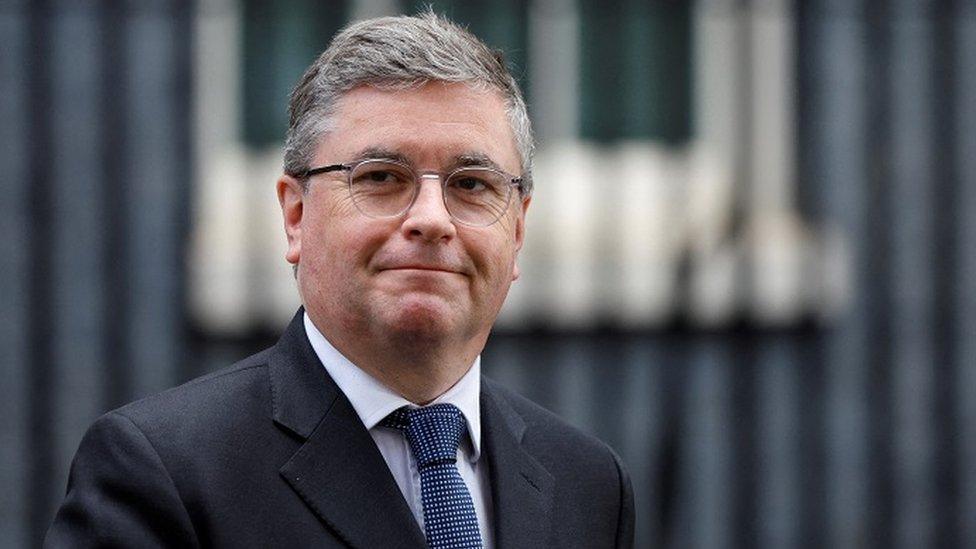Irish government will be involved if Stormont does not return - Alliance MP
- Published
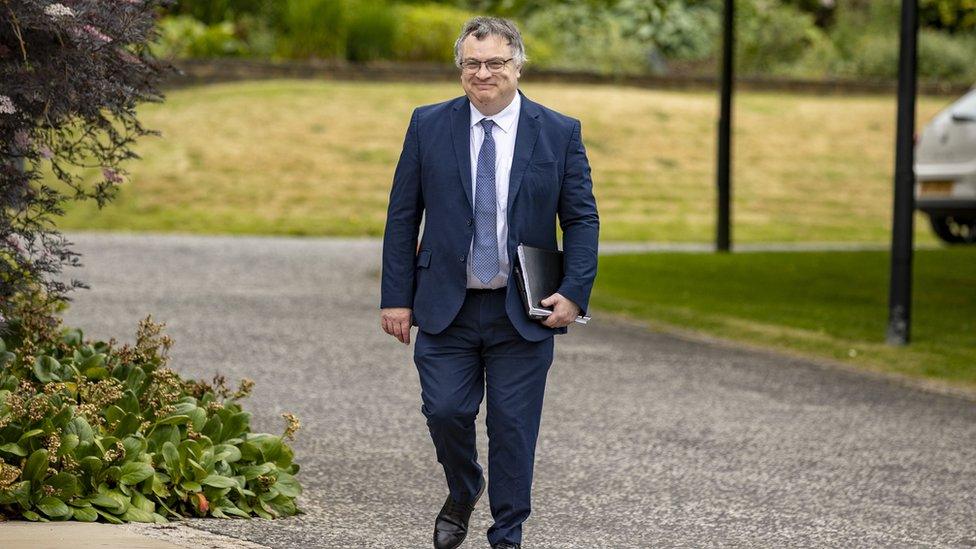
Stephen Farry said Dublin will have to be part of a plan B if devolution is not restored
The Irish government will have an increased say in Northern Ireland's affairs if devolved government is not restored, an Alliance Party MP has said.
Stephen Farry said there'll be "no choice" but for Dublin to be part of a plan B for governing Northern Ireland.
A legal deadline to restore devolution in Northern Ireland passed on Friday.
The Democratic Unionist Party (DUP) has been blocking devolution since early 2022.
It is facing pressure to back a new deal to end the impasse, but made no decision when its 12 party officers, including leader Sir Jeffrey Donaldson, met on Friday.
Northern Ireland's government collapsed after the DUP withdrew in protest against post-Brexit trade checks between the region and Great Britain.
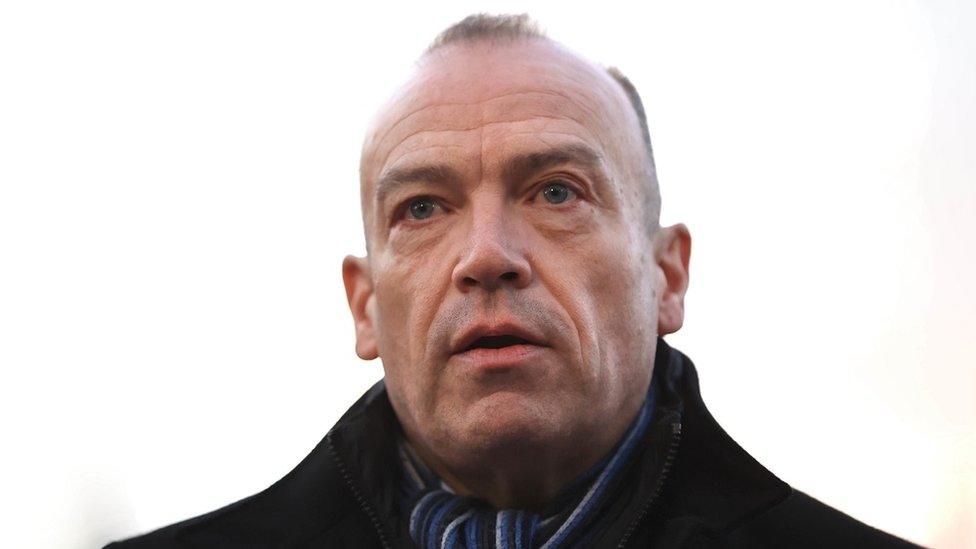
NI secretary is under legal obligation to call an early assembly election but has pushed the deadline multiple times
Northern Ireland Secretary Chris Heaton-Harris is expected to set out the next steps in Parliament in the coming days, after a legal deadline for the restoration of devolution passed.
He is now under legal obligation to call an early assembly election, but he has pushed back this deadline several times before and has indicated he will do so again.
There has been much speculation on how Northern Ireland will be governed if Stormont does not return, with one senior Conservative MP indicating that traditional direct rule is off the table and suggesting there would be an increased role for the Irish government.
Unionists, including the DUP, have said they would be strongly opposed to Dublin's involvement in Northern Ireland.
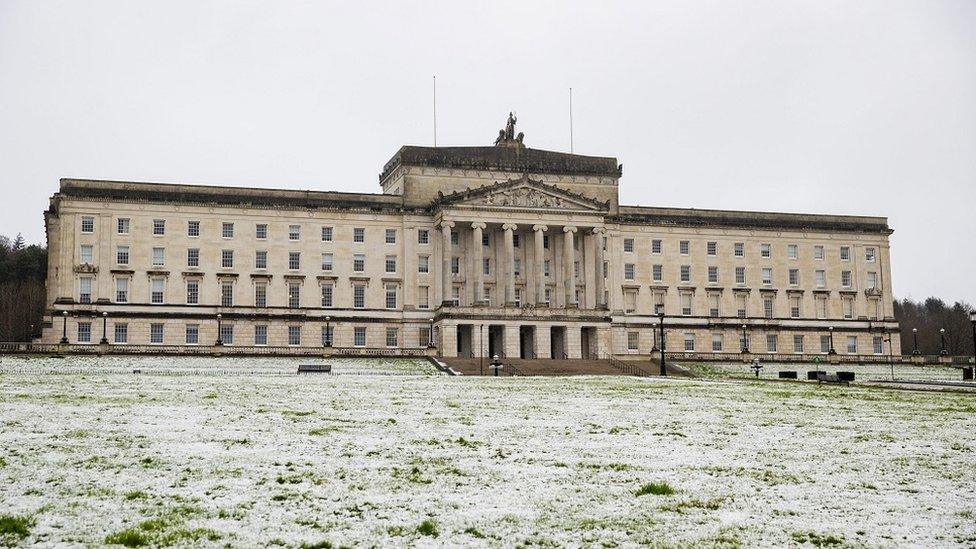
The Northern Ireland Assembly has not functioned since February 2022
However, Mr Farry, Alliance's deputy leader, said there would be no other option if Stormont does not return.
"It will be a consultative role [for the Irish government], not an executive role because that takes us into a different space," he told BBC News NI's Sunday Politics programme.
"But, absolutely, the principle of an Irish government having a consultative say was established in 1985 under the Anglo-Irish Agreement and I find it utterly bizarre that some people who are rejecting moving forward under a restored assembly are saying: 'Well, we can always have direct rule as a fall back.'"
Mr Farry added that he did not believe "we're necessarily going to see an Irish dimension straight away but there will be pressure applied in that particular respect".
"I don't see it at a very granular level, it will be at a high level in terms of those engagements but that is the direction of travel.
"And for those that are seeking direct rule as a fall back they have to be extremely aware of where this is going to go and it's bizarre and illogical in terms of the position they're taking."
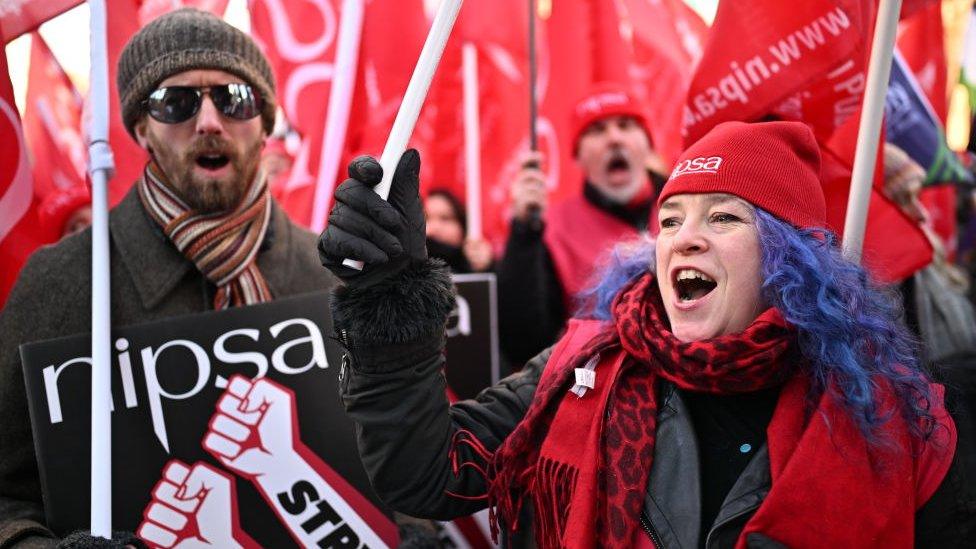
A public sector strike across Northern Ireland has been billed as the largest in Northern Ireland for 50 years
Why did Northern Ireland's government collapse?
The DUP withdrew from power-sharing in February 2022 over its objection to what was known as the Northern Ireland Protocol - the post-Brexit rules that would oversee how trade operates between Northern Ireland and Great Britain.
The UK agreed a new deal with the European Union called the Windsor Framework aimed at addressing issues with the previous deal, but the DUP said this did not go far enough and the party has been in talks with the government.
Before Christmas the government offered a £3.3bn package if devolution was restored, but the DUP said more changes were needed.
Pressure is building on the party, however, particularly over pay for public sector workers.
More than 100,000 workers including nurses, teachers and civil servants took part in the biggest strike seen in Northern Ireland in decades on Thursday.
Sixteen trade unions were involved in the industrial action that halted bus and train services, closed schools and disrupted health services.
Of that £3.3bn offered by the government, £548m is earmarked to address public sector pay issues - but Mr Heaton-Harris has said this will only be released if power-sharing government returns.
- Published19 January 2024
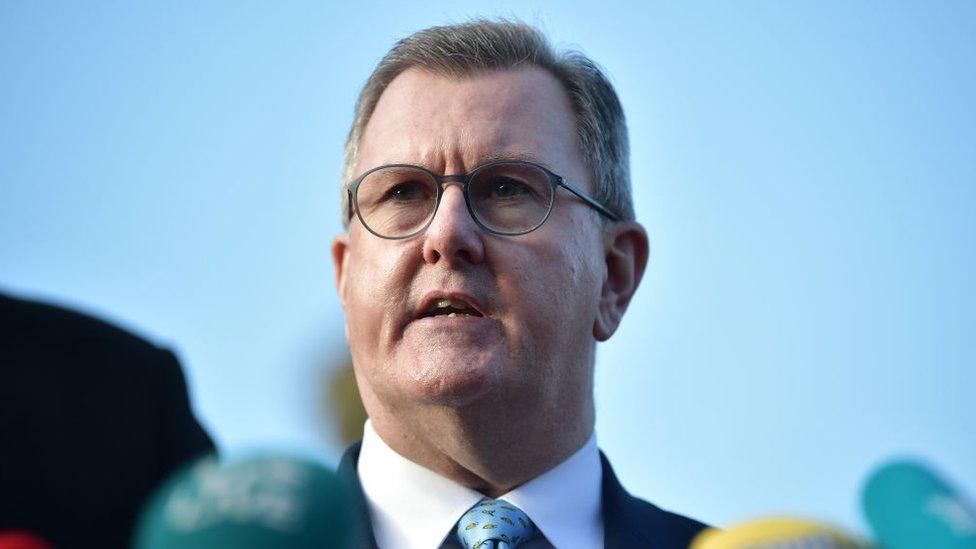
- Published19 January 2024
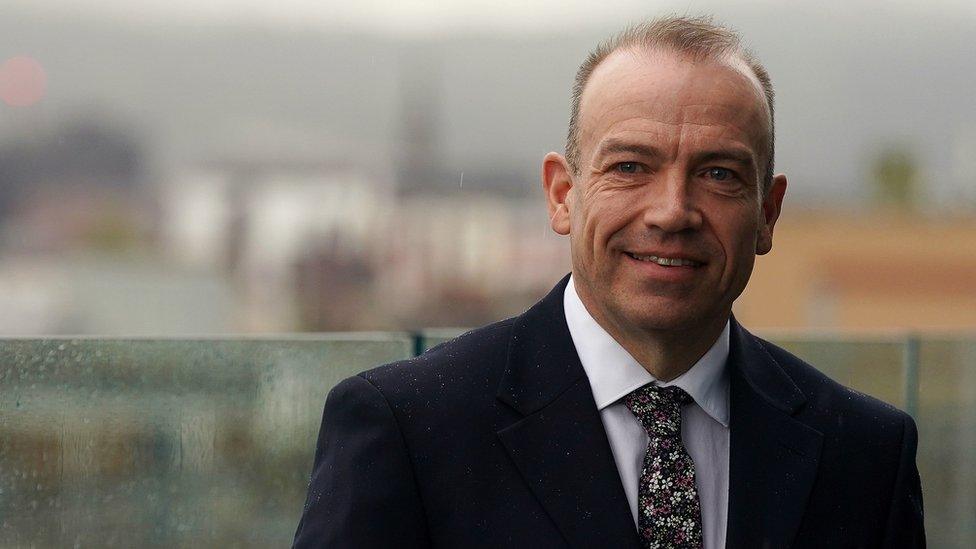
- Published12 January 2024
